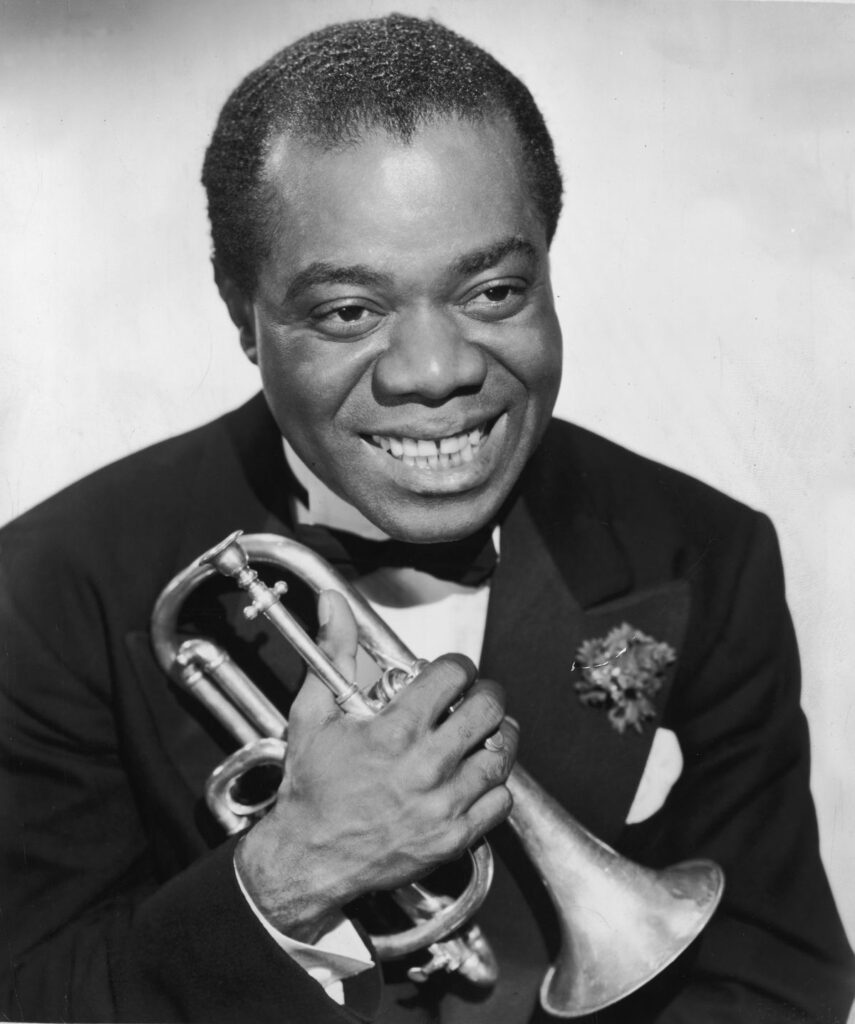Louis Armstrong, often referred to as the “Father of Jazz,” was a pioneering American musician whose impact on the world of music cannot be overstated. Born in 1901 in New Orleans, Louisiana, Armstrong rose from humble beginnings to become one of the most influential and beloved figures in jazz history. With his distinctive trumpet playing, soulful voice, and infectious stage presence, Armstrong revolutionized the genre and left an indelible mark on the music world. In this blog post, we delve into the complete biography of the extraordinary Louis Armstrong, tracing his life, career, and enduring legacy.
Early Life and Musical Roots:
Louis Armstrong’s musical journey began in the vibrant streets of New Orleans, a melting pot of cultures and musical styles. Born into poverty, Armstrong found solace in music from a young age. He honed his skills playing the cornet in street parades and in the dance halls of the city’s notorious Storyville district. Influenced by the rich traditions of African-American and Creole music, Armstrong developed a unique style that combined technical virtuosity with heartfelt expression.
Rise to Fame:
In the 1920s, Armstrong’s talent caught the attention of Joe “King” Oliver, a renowned cornetist and bandleader, who became his mentor and guide. Armstrong’s virtuosity and improvisational skills quickly garnered him recognition and opportunities to perform with some of the most prominent jazz ensembles of the time, including the Fletcher Henderson Orchestra. It was during this period that he began to gain widespread acclaim and established himself as a leading figure in the jazz scene.
Innovation and Musical Contributions:
Louis Armstrong’s contributions to jazz are immeasurable. He pioneered the concept of solo improvisation, elevating the role of the individual musician within the ensemble. His innovative use of scat singing, where he vocalized improvised melodies and rhythms, became a trademark of his performances. Armstrong’s recordings, such as the iconic “West End Blues” and “Potato Head Blues,” showcased his technical prowess and ability to infuse emotion into his music.
Ambassador of Jazz:
Beyond his musical achievements, Louis Armstrong used his fame as a platform to break down racial barriers and promote unity through his music. He embarked on international tours, performing in countries around the world and spreading the infectious joy of jazz. Armstrong’s vibrant personality and charm won him fans across continents, and his music became a universal language that transcended cultural boundaries.
Legacy and Influence:
Louis Armstrong’s impact on jazz and popular music cannot be overstated. He influenced generations of musicians, from fellow jazz greats such as Duke Ellington and Miles Davis to rock ‘n’ roll pioneers like Elvis Presley and The Beatles. His collaborations with Ella Fitzgerald, another jazz legend, produced timeless recordings that continue to captivate audiences today. Armstrong’s expressive playing, melodic improvisation, and charismatic stage presence set the standard for generations of musicians to come.
Conclusion:
Louis Armstrong’s life and music continue to inspire and resonate with audiences worldwide. From his humble beginnings in New Orleans to his ascent as an international jazz icon, Armstrong’s journey embodies the transformative power of music and the spirit of perseverance. His unique style, technical brilliance, and warm personality cemented his status as one of the greatest musicians of the 20th century. As we celebrate his extraordinary contributions, let us remember Louis Armstrong’s legacy as a true pioneer, a cultural ambassador, and an eternal symbol of the enduring spirit of jazz.


No responses yet